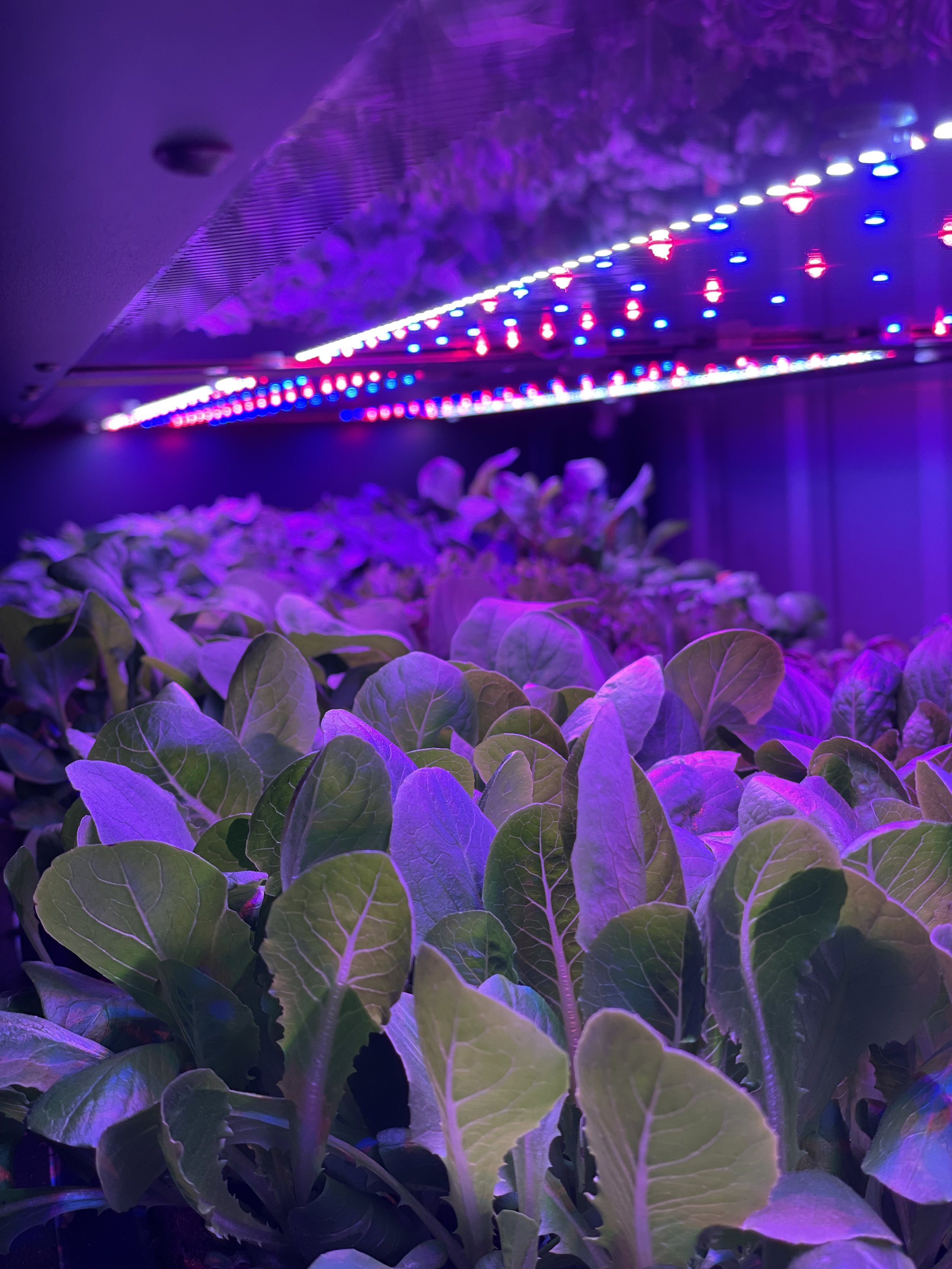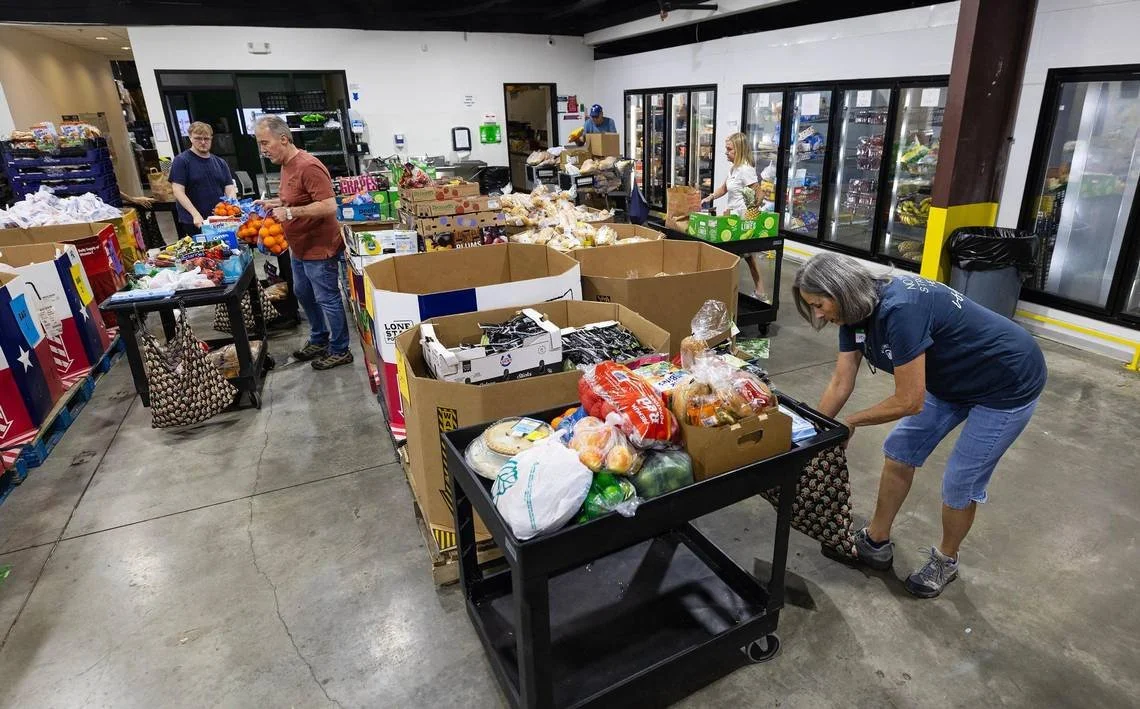
News About Farming in Shipping Containers & Limited Indoor Spaces
Communities Find Fresh Approaches To Tackling Food Insecurity
One in four Canadians — more than 10 million people — are struggling to put food on the table, according to a new RBC report published in June.
This is the highest level ever recorded in this country, driven by rising costs and limited access to affordable food.
In Ottawa, a new initiative at The Ottawa Mission shows how community collaborations can make a difference in combatting this important issue.
With two new modular vertical farms built in partnership with local ag-tech company Growcer, and with support from RBC Foundation through the Ottawa Community Foundation’s Food Resilience Foundation Fund, the shelter is now producing up to 20,000 pounds of fresh greens annually.
How This Group is Fighting Food Insecurity in Northwest Tarrant County
Community Link is addressing this through a new project called ‘Fresh Link Farms,’ a hydroponic freight farm that’s able to grow lettuce, leafy greens, herbs, root vegetables and edible flowers in a 320-square-foot space, which will be next to the Azle Farmers Market, a press release said.
“It looks just like a shipping container, but inside it’s a hydroponic vertical farm, and it will grow at max capacity about 1,000 heads of lettuce a week,” Harper said. Vanessa Thompson, food program manager, said that some customers have been coming to the pantry since it opened 20 years ago.
The pantry gives a variety of what is on hand each day: frozen food, meat, eggs, produce, bread, hygiene products, and pantry items like coffee and pet food.
Hale Kipa Installs ‘Freight Farm’ in Ewa Beach, Honolulu, Hawaii
Venus Kau’iokawekiu Rosete-Medeiros, right, CEO of Hale Kipa, and Gerry Labiste, left, communications manager at Hale Kipa, walk toward the Freight Farm structure, Thursday, July 24, 2025, in Ewa Beach.
Hale Kipa installed the “Freight Farm,” a hydroponic agricultural facility built inside of a shipping container, which can grow 2 to 6 tons of green crops a year.
Homeless and at-risk shelter residents will cultivate their own healthy food and share with the community.
USA - WISCONSIN - Local Food Pantry In Menasha Uses Flex Farms To Boost Fresh Food Access In Fox Valley
A local food pantry is making a difference in the Fox Valley.
St. Joseph's Food Program in Menasha uses their hydroponic systems or Flex Farms to ensure the community has better access to fresh food.
Flex Farms are mobile vertical growing systems that only require 9 square feet of space and a standard electrical outlet for operation. A single Flex Farm can grow 25 pounds of lettuce every 28 days.
St. Joe's Food Pantry has 20 Flex Farms to held feed people in the community.
VIDEO: Canadian-Built Vertical Farm Brings Fresh Food—and Hope—to Ukrainian Refugees in Moldova
In a quiet corner of rural Moldova, inside the concrete walls of a former Soviet barn, a new kind of food revolution is quietly taking root—literally. Thanks to an innovative partnership between Canadian ag-tech company Just Vertical and humanitarian organisation GlobalMedic, a fully functional indoor hydroponic farm is now providing hundreds of pounds of fresh produce each month to Ukrainian refugees and local Moldovan families facing ongoing food insecurity.
The farm, capable of growing more than 1,000 plants simultaneously, was completed in just eight months and is already making a meaningful difference in a region under strain. As war continues across the border in Ukraine.
USA - MAINE: Farming Outside - And Inside - The Box
At the Good Table F oundation’s property in Castine, a nondescript tan shipping container sits alongside the driveway. But inside the container is one of the area’s most dynamic, high-tech hydroponic farms.
An all-volunteer organization, Good Table Foundation grows fresh greens for distribution through food pantries.
Founder Greg Nitzkowski had seen similar hydroponic container models in California. He and his wife Barbara were inspired to bring the concept to Castine, where they retired after being long-time summer residents in the area. They incorporated the organization as a 501(c)(3) nonprofit in 2023 and began operations in 2024.
The operation supplies fresh greens to Loaves and Fishes Food Pantry in Ellsworth and Caring Community Cupboard in Old Town. They operate the farm 365 days a year, and all of the produce they grow is donated. Volunteers from GTF harvest, process, and deliver the produce in a single day, delivering more than 200 4.5- ounce bags of greens each week. The mix can include kale, lettuces, arugula, and more, all packaged in compostable, labeled bags just as they might be in a traditional retail setting.
“Making Every Acre Count” While Empowering The Community
Located on a former brownfield site, the farm turned to CEA technologies like vertical farming, container growing, and hydroponics to bypass poor soil quality and limited space issues. "Our motto is, 'Make every acre count,'" Trevor explains. Using over 300 vertical towers, the farm can produce thousands of heads of lettuce in a single cycle.
Educational greenhouses and hydroponic systems
MOFC's success lies in using hydroponic systems and greenhouse technologies. High tunnels—polyplastic-wrapped structures provided by the USDA—protect crops from unpredictable weather, while Dutch bucket systems optimize the production of crops like tomatoes, with each bucket yielding 35 to 50 pounds. By integrating hydroponics, the farm circumvents the need for long-term soil regeneration, a process that can take up to 10 years on previously developed land.
Chicago’s First Youth-Led Container Farm Helps Combat Food Deserts on the South Side
The program was launched in March in partnership with the By the Hand Club and Kenilworth Union Church. The hydroponic container farm operates in any climate and without the use of harsh chemicals. So far, it’s produced eight harvests.
"When we have a full container, we’re looking at about 4,000 heads of lettuce that we’re currently growing," said Joe Jones, senior director of entrepreneurship at Bowen Harvest. "The cycle is about 4,000 and that equates to about four acres a year."
Mid-Ohio Food Collective Opens Hilltop Farm To Help Supply Pantries
Mid-Ohio Food Collective celebrated the opening of its technology-rich "smart farm" in the Hilltop on Tuesday, though it's already been producing fresh food for several months.
Everything grown at the seven-acre farm on Wheatland Avenue goes to Mid-Ohio’s food banks and markets. CEO Matt Habash said the farm came from the idea that MOFC had to do things differently to keep up with a growing need.
The site also has a futuristic LED-light year-round mobile growing center housed in a repurposed shipping container.










